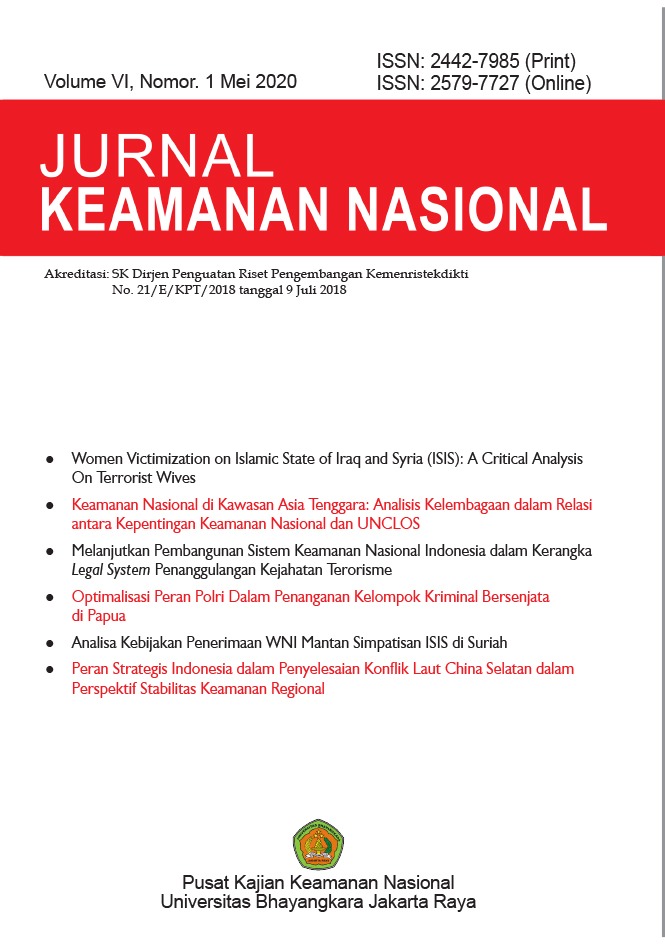Women Victimization on Islamic State of Iraq and Syria (ISIS): A Critical Analysis On Terrorist Wives
Keywords:
victimization; terrorism; terrorist wives; neglected victimsAbstract
Nowadays, perpetrators on terrorism are not male dominated. Research in this thesis discusses women's involvement as terrorist wives to support their husband and their terrorist groups. This research focused on the process of how wives were brought and involved in terrorism by their husband. Terrorist wives are the invisible victim of terrorism, they are involved not by their own will. Pressure, intimidation, dominance and symbolic violence in their household move toward a new kind of victimization. Using a qualitative approach in-depth interview with two terrorist wives, this research found terrorist wives experienced multiple victimizations. Another finding is also made that wives are unconscious that they are actually victims with society's unawareness showing that there is an omission by the government. Terrorist wives not only experience multiple impacts, but also they are neglected victims of counter-terrorism systems.
Downloads

Downloads
Published
Issue
Section
License
Please read and understand the copyright terms for submissions to this journal.
Copyright Notice
The Jurnal Keamanan Nasional is under the Creative Commons Attribution 4.0 International (CC-BY 4.0) License, according to which:
1) Authors retain copyright and grant the journal the right to first publication, with the work simultaneously licensed under the Creative Commons Attribution (CC-BY 4.0) that allows the sharing of articles published with the acknowledgement of authorship and the initial publication in this journal.
2) The authors are authorized to make additional contracts separately for distribution of the version of the work published in this journal (for example, publication in an institutional repository or as a chapter of the book), as long as there is recognition of authorship and initial publication in this journal.
3) Authors are authorized and encouraged to publish and distribute their work online (for example, in institutional repositories or on their personal pages) at any time before or during the editorial process, as it increases the impact and reference of the published work.












